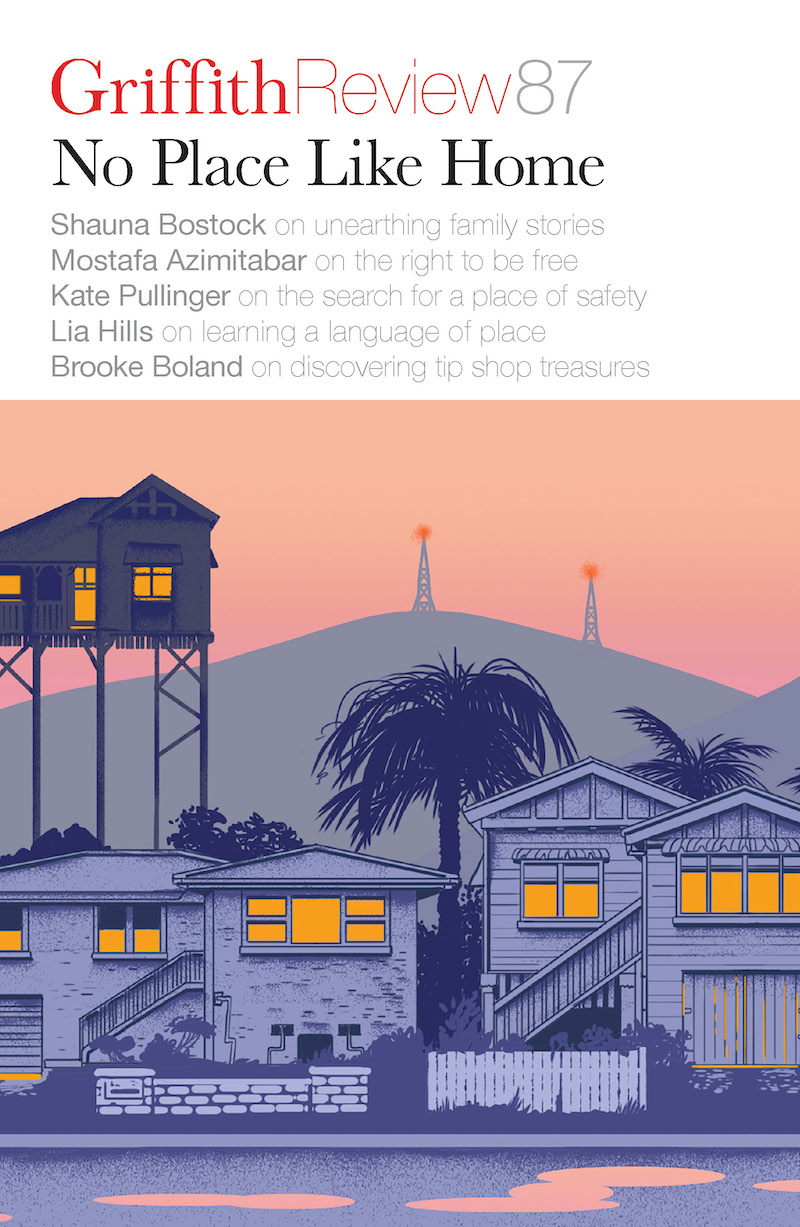Featured in

- Published 20250204
- ISBN: 978-1-923213-04-3
- Extent: 196 pp
- Paperback, ebook. PDF


Already a subscriber? Sign in here
If you are an educator or student wishing to access content for study purposes please contact us at griffithreview@griffith.edu.au
Share article
About the author

Cherry Zheng
Cherry Zheng is a writer and dancer of Cantonese heritage. Her work has appeared in Overland, Aniko Press, The Suburban Review and the British Science-Fiction...
More from this edition

Home is a long way away
Non-fictionThe Australian housing market is a wealth-generating machine, not a home-generating machine. So much is wrong with the current situation. No doubt you see it too; everybody seems to on some level. That’s why we keep hearing about the ‘Australian housing crisis’. I can see it, and I proudly consider myself an old-school capitalist, with a preference for free enterprise, fair competition, private property rights and the chance to make an occasional profit. We now find ourselves with a de facto caste system in Australia: the home owners relative to the home renters. Both groups need homes, but there is a marked wealth division between those collecting passive income on houses they own and those living solely on direct income who are forever chasing a rising market.

Mudth
Non-fictionMy family has its roots in several parts of the world: the Lui branch in New Caledonia, the Mosby branch in Virginia in the US, and the Baragud branch in Mabudawan village and Old Mawatta in the Western Province of PNG. Growing up, I spent most of my childhood with my Lui family at my family home, Kantok, on Iama Island. Kantok is a name we identify with as a family – it’s not a clan, it’s a dynasty. It carries important family beliefs and values, passed down from generation to generation. At Kantok, I learnt the true value and meaning of family: love, unity, respect and togetherness. My cousins were like my brothers and sisters – we had heaps of sleepovers and would go reef fishing together, play on the beach and walk out to the saiup (mud flats). I am reminded of these words spoken by an Elder in my family: ‘Teachings blor piknini [for children] must first come from within the four corners of your house.’

Steering upriver
Non-fictionAt dawn I cross the bridge, Missouri to Iowa, and turn down the gravel drive. Though I’m different now, this place is the same as it always is this time of year: the sun glowing red over the paddock next door, the grass not yet green, the maple stark. I go away, come back again, and home is like a photograph where time winds back, slows into stasis; where the carpet has changed, but the dishes have not, the cookbooks have not, the piano and artwork and bath towels have not. Here, I can be a child again, my best self, briefly. I hold on to this moment for as long as I can, because too soon I’ll remember how disobedient I am, how bossy and domineering, how I slammed my door until Dad took it off its hinges, how soap tastes in my mouth, how I pushed on these walls until they subsided.